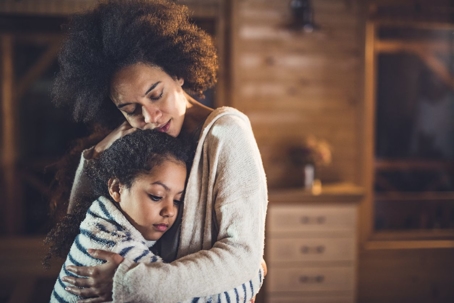Divorce is never an easy decision to make, but sometimes it is the best one for everyone involved. When parents get divorced, it will not only affect them but their children as well. Oftentimes, parents who are contemplating whether or not they should split up will think about how it is going to impact their child’s life.
While parents understand the reasons for their divorce, their child can have a hard time coming to terms with their parents splitting up. Children are too young to understand the complexities of adult relationships resulting in feelings of confusion, anger, and insecurity.
While every situation is unique, a divorce will have some kind of effect on a child. However, there are things parents can do to reduce some of these effects. First, it’s important to understand what divorce does to the child.
The Effects of Divorce on a Child
Since each child is different, the effects of divorce will vary. However, most commonly children of divorce will experience:
Difficulty Adapting
During this time, there will be a lot of change. Splitting up means the child might have to live in two homes if the parents have joint custody. Learning to adapt to the changes can be hard for children who are used to having a constant routine.
Poor academic performance
The changes at home can distract children from doing their schoolwork. As they try to come to terms with the divorce, they will focus on how they are feeling, rather than academics, resulting in their grades dropping.
Health problems
Divorce can also introduce a child to health problems. Children are more likely to experience obesity. Additionally, they can have problems with sleeping and may experience stomach problems and headaches. This is due to the stress they are feeling as their lives are changing dramatically.
Destructive Behaviors
Children of divorce might turn to drugs, crime, and early sexual activity. Adolescents are reported to drink alcohol and use marijuana, tobacco, and other drugs earlier than their peers.
Emotional Problems
When divorce happens in a child’s life, they will experience a range of emotions. They might feel angry, irritable, confused, anxious, fearful, or guilty. The problem is they usually have a hard time processing these emotions.
How to Help Your Child Get Through a Divorce
One of the most important things that divorcing parents can do for their children during this time is to try and cooperate. When a relationship ends, there can be a lot of anger and hostility between the couple. A lot of times, the child ends up in the middle of this conflict, and they can begin to feel like they must choose sides.
When this happens, it can be very damaging to the child’s relationship with their other parent.
Despite what problems they are going through, divorcing parents should keep their issues away from their child. Instead, parents should focus on helping them through this transition. They can do this by being cooperative co-parents. Which means both parents will have to overcome their differences. Although this can be difficult to do, it will ultimately help the child’s well-being.
During a divorce, Florida courts require a parenting plan for custody cases. The parenting plan should be in the child’s best interest and must outline:
- How the parents will share and be responsible for the daily tasks associated with the child’s upbringing
- The amount of time the child will spend with each parent
- Which parent is responsible for decisions regarding health care, education matters, and other activities
- The methods and technologies that each parent can use to communicate with the child
A lot of things will be changing for the whole family during this time, and the parenting plan can help each parent understand what is expected of them. While this plan can stop some of the tension and conflict that happens when parents share custody, there are other things divorced parents can do to make this transition easier for their child, such as:
- Being respectful and cordial during drop off time
- Not talking badly about the other parent
- Respecting the other parent’s time with the child
- Keeping a consistent routine
- Listening to how their child is feeling
- Offering support
- Helping the child understand that they are not at fault for the divorce
While divorce can negatively affect children, parents can help their child get through this difficult time. By creating a parenting plan and working together to prioritize their child’s needs, parents can help their child get through divorce.
A Bartow Attorney Can Help
Advocate Law Firm, P.A. understands how important your children are. We will help you through the custody process and do everything we can to ensure you and your child’s needs are met. Our Bartow family law attorney is here to be your advocate during this time.
If you need help with a child custody issue, contact us today at today for a free consultation.

